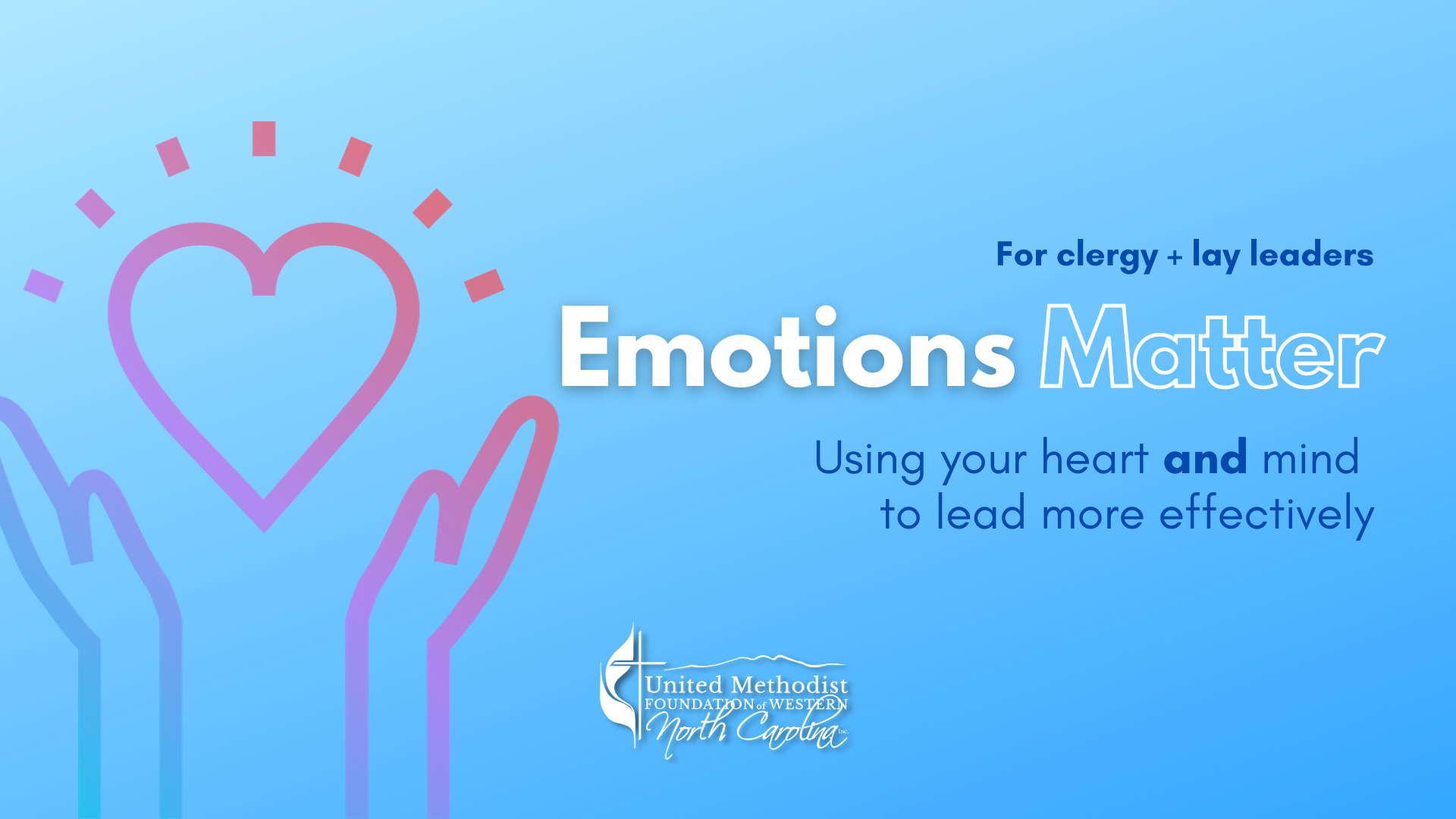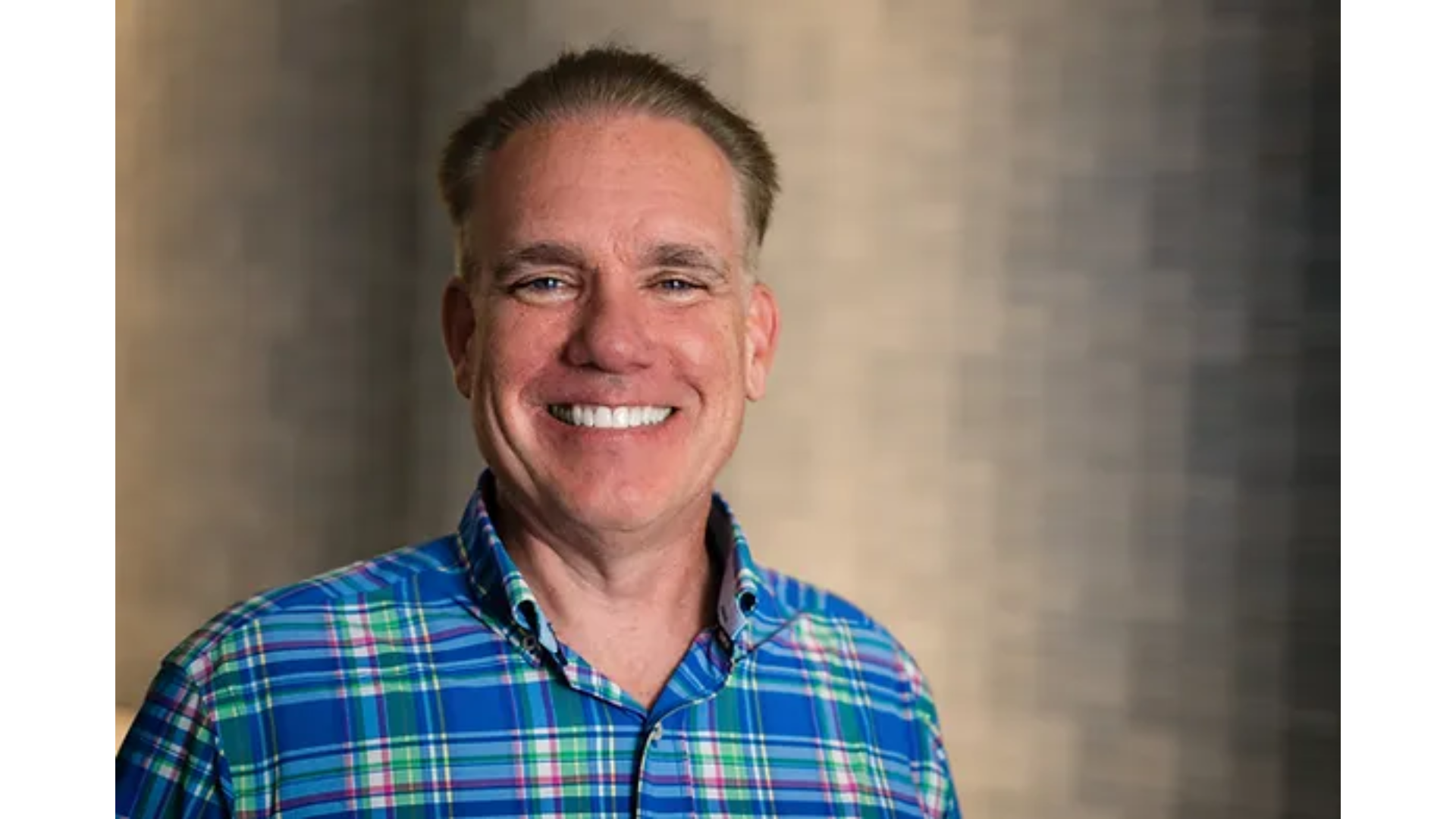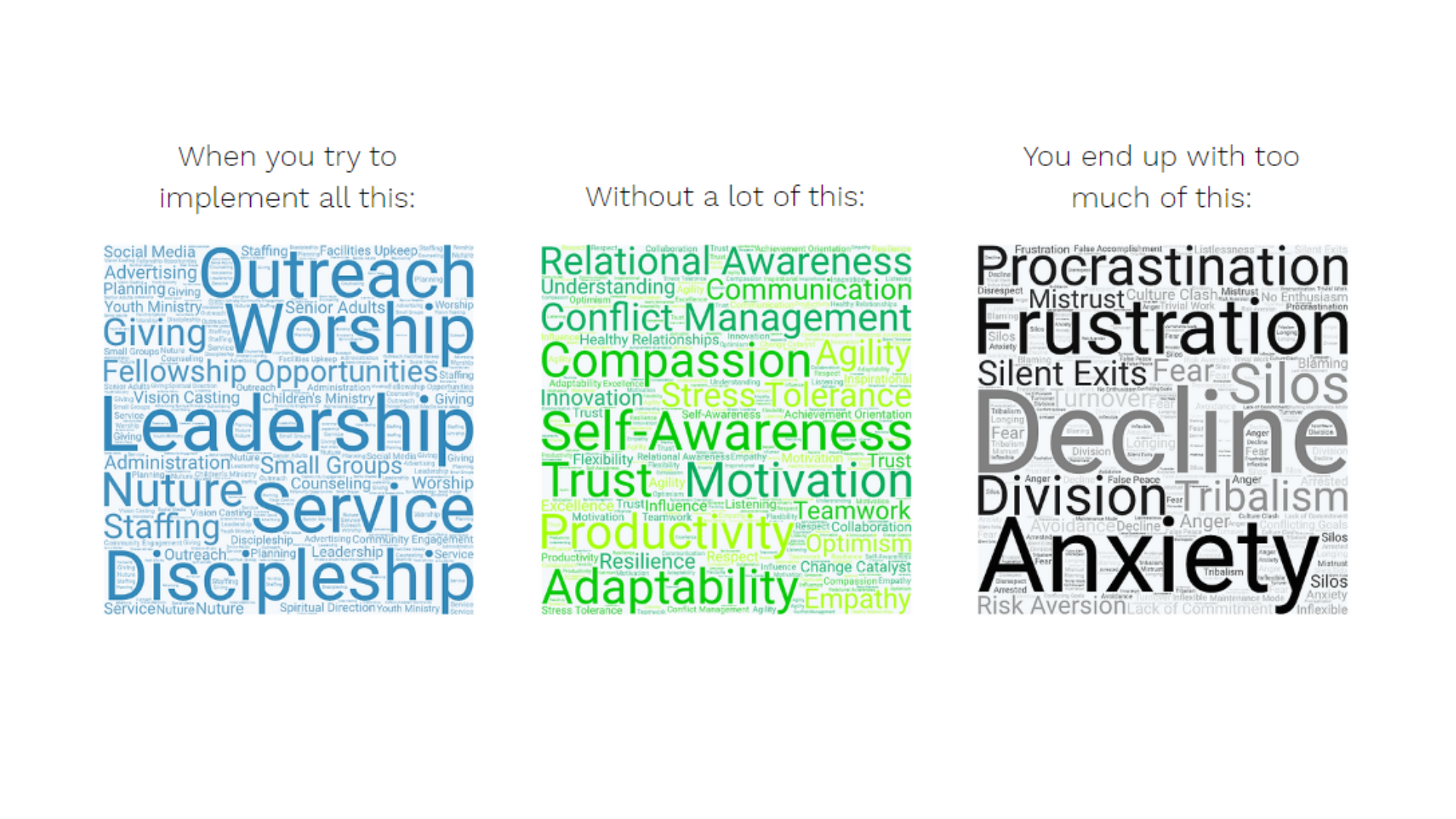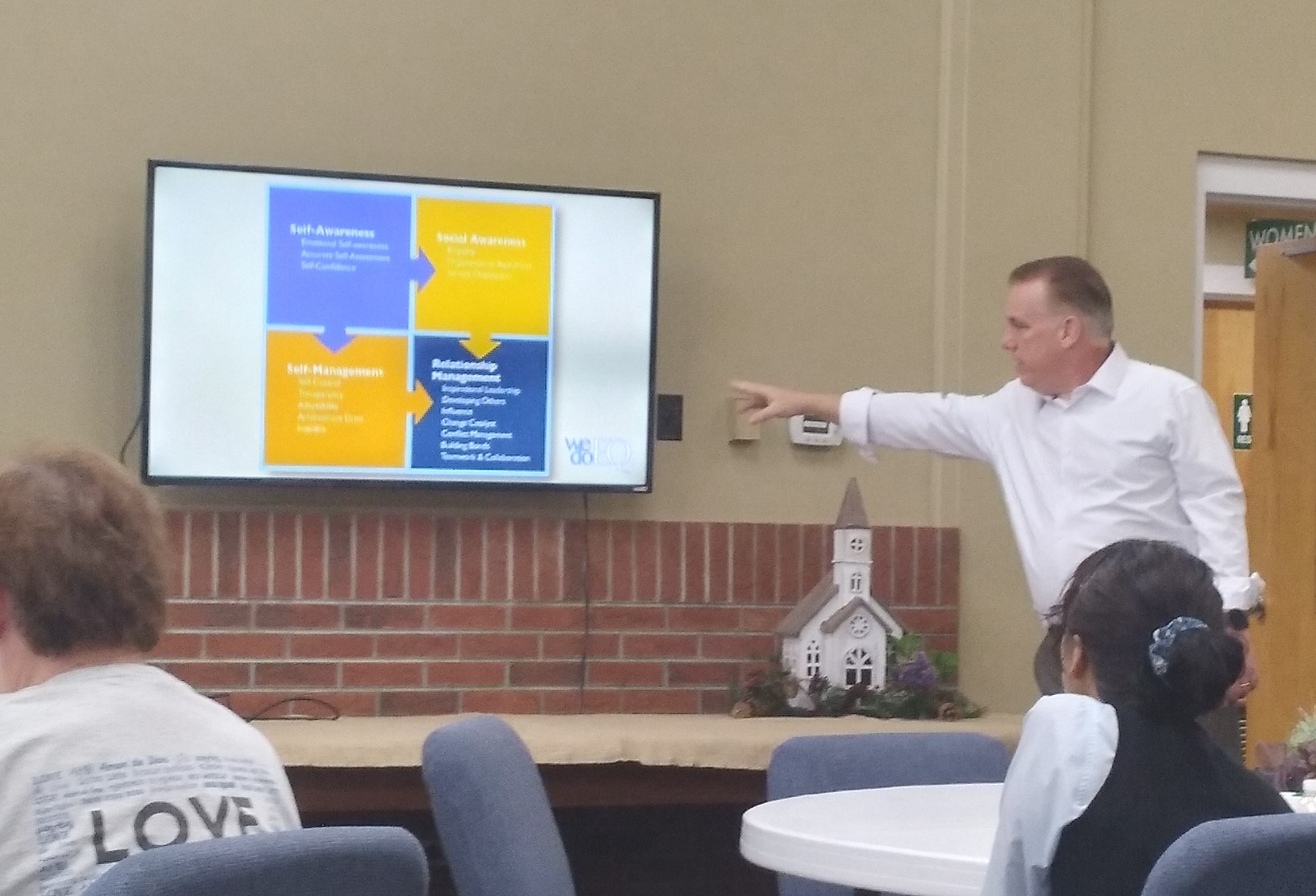
An average person has 400 emotional experiences in a single day, researchers tell us. What about a clergy or lay person… serving in the United Methodist Church…post-pandemic… post-General Conference… mid-election season?
Well, let’s just say the number is higher. In too many cases, ministry leaders lack the skills and preparation to navigate in healthy ways – both for their own well-being and the well-being of their congregations.
Rev. Dr. John McGill wants to change that. After 30 years in the local church, John has found a new way to serve. He preaches the importance of emotional intelligence and equips people of faith to put it at the center of their approach to leadership.

The Foundation has partnered with John’s ministry, called We Do EQ, to offer a course for clergy and laity in the Western North Carolina Conference. The goal: to help participants become more attuned to their own emotions and the emotions of others, and learn to respond with wisdom rather than recklessness (Proverbs 12:18).
Register today: To help determine whether the course is right for you, the Foundation will host introductory workshops in locations around the Conference. Please click here to register online.
The timing coincides with the conclusion of a historic General Conference. At a worldwide gathering in Charlotte, the church’s governing body voted to remove restrictive language that was harmful to the LGBTQ+ community. At the same time, delegates honored the freedom and conscience of local churches to do ministry in their own contexts while remaining part of the connection.
The outcome capped a season in which a quarter of the denomination’s U.S. churches left through disaffiliation. Many UMC leaders are now asking: “Who are we now?” and “What do we need to move forward?”
“In a few years, where is the strength of the United Methodist Church going to be as a denomination?” John asked. “It’s not going to be how many churches we have left, or the financial position of the Conference. The strength of our Church, I think, will be in the spiritual and emotional health of our clergy – those on the front line. Are they ready to see what God has next? Or are they beat down, wore out, without hope?”
Meeting the needs of those we serve
The offering flows, in part, from a strategic visioning process to enable the Foundation to evolve to meet the needs of those we serve. Constituents expressed an interest in leadership training for lay people in the local church and professional development for clergy in the middle and later stages of their careers.
Among the topics to be covered at the introductory workshops:

Linking spiritual life, emotional health
A painful ministry setback sparked John’s interest in the field. Twelve years ago, a church put him in charge of a campus plant. John and his wife, Anita, moved their family to a new community and poured themselves into the assignment. A phone call came a few months later. There was a change in plans. The plant would be closed.
As John tells audiences, the experience prompted a time of soul-searching. Conversations with a coach, therapist and clergy colleagues brought words of encouragement.
“I’m listening to all these professionals saying ‘You did everything right,'” John said. “But in my heart, I still felt like a failure. I spent a lot of time in the land of coulda, woulda, shoulda. (Now) when I share this with groups, there’s a lot of pastors and laity nodding their hands. They know what it feels like.”
Seeking a more positive mindset, John delved into books on emotional health and resilience. What he learned would be life-changing.
“I’ve come to believe that our spiritual self and emotional self are highly intertwined, if not the exact same thing,” he said. “God comes into our lives and wants to enrich our spirits. When we heal from past hurts and traumas, that’s all about our emotional self, and that’s what God is doing.”
Clergy are trained to preach and lead more than to listen and feel. Emotional intelligence is not often taught or widely discussed.
But when ministry leaders begin to understand it, the value of this work becomes clear: “One or two insights can really start the shift,” John said. “Once that ball gets rolling, I’m surprised by how quickly we can make incredible change.”

Best wishes to a cherished colleague and friend
As she leaves the Foundation to move closer to family, Susan Cothern offers a word of thanks.
Board gives thanks for leadership, growth and fruitful ministry
There was a special tribute for outgoing board chair Anne Martin, whose steadying presence proved invaluable as the Foundation navigated post-pandemic recovery, disaffiliation and accompanying challenges.
Disciplined approach protects, grows your investment dollars
We are committed to maintaining discipline, balance, and, most importantly, a long-term focus in the decisions we make on your behalf.